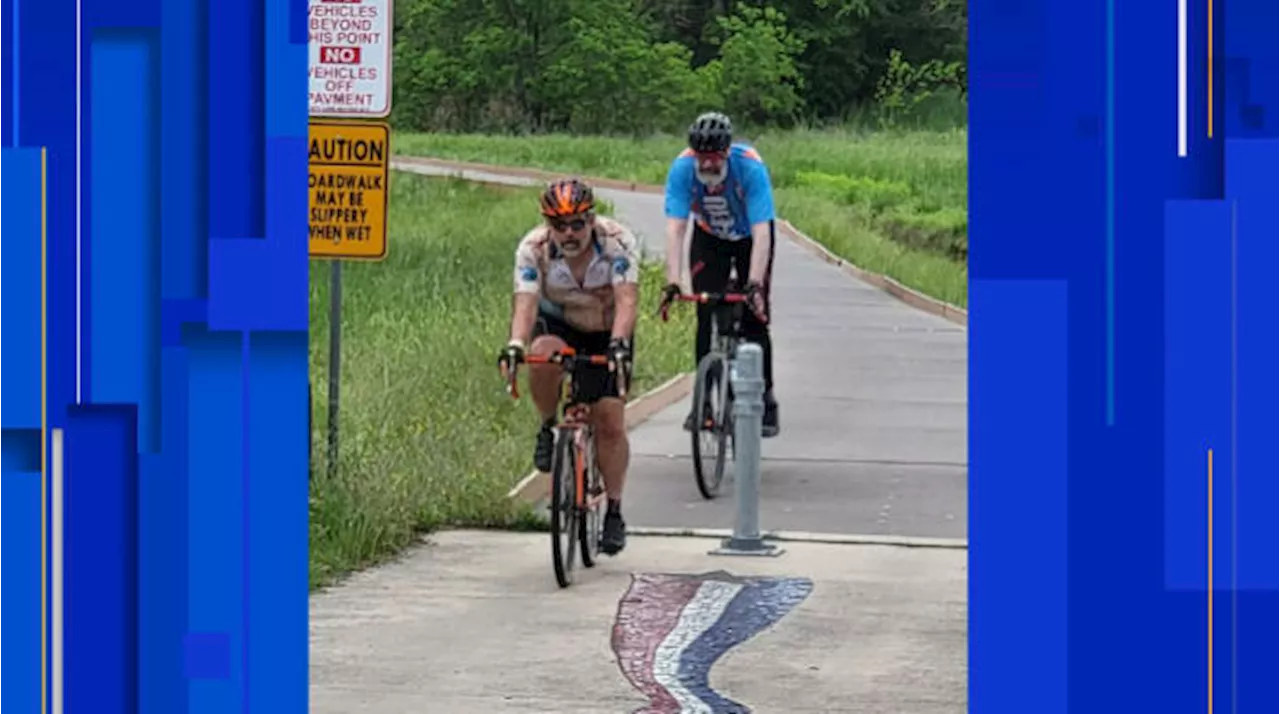What happens in the brain when you pray or meditate? Neurotheology explores the connection between our synapses and spiritual revelations.
“It was a warm pressure sensation at the base of my spine. It was really pleasant and peaceful. It was unlike anything I'd ever experienced," says“One night as we headed over the Bay Bridge to San Francisco in the early evening, I felt sudden clarity and knowing that San Francisco was ... where I needed to be," says listener Deb McGuire.“There’s not one part of our brain that turns on when we become spiritual," says neuroscientist Dr. Andrew Newberg.
RETES: And so we went home and, um, I was standing — my sister was lying in my mom's bed, and I was standing next to the white baby grand piano that my mom loved to play. She was all about music and musical instruments. And I never really liked that clock. But anyway, I looked at it and I noted that it was 6:41.
. I'm Meghna Chakrabarti. Fred Retes grew up in a Catholic household, but doesn't identify with any religion himself. listeners John Fisher in Eugene, Oregon; Julia Hengst in Maui, Hawaii; and Maria Sabath from Southern California. NEWBERG: Well, you know, I can't exactly say why I always had these questions. But going back to when I was a young kid, I just always was trying to understand the nature of reality. I didn't understand if we're all looking at the same universe, the same world around us, why we have different religions, different political ideas.
CHAKRABARTI: Yeah, exactly. Of course, I wanna just make it clear again that we're — when we're talking about spirituality in the brain, this is by no means exclusively something that we're defining as a purely religious experience. right? The definition of spirituality is much broader than that. So I'm just wondering then, let's put some larger boundaries on it.
And so for me, I mean, it is fascinating that somebody has some kind of experience and can say,"Ah, that is spiritual."NEWBERG: So there does seem to be something different about them, but exactly what part of that, has been a real cornerstone of what I have been looking at doing.
And we're joined today by Dr. Andrew Newberg. He's research director of the Marcus Institute of Integrative Health and a professor at Thomas Jefferson University. Author of many books about neurology and spirituality, including"Neurotheology: How Science Can Enlighten Us About Spirituality." And his latest is"The Varieties of Spiritual Experience: 21st Century Research and Perspectives.
small I am within the fabric of our existence — that I don't quite understand everything that's going on, but that's okay also. But the other aspect to all of these experiences that we seem to be able — when we did a survey where we got about 2,000 people who provided reports of the most intense experiences that they considered to be spiritual — we could break them down into different categories. And the kind of experience that we just heard probably falls into the realm of what are called synchronicity kind of experiences.
You have a sort of cognitive concept, like this particular phrase. Then what happens is that now it starts getting matched with a very powerful emotional burst. So we're now talking about areas of the brain that help us with our emotions: the limbic system areas that people may have heard of like the amygdala, which turns on when something really important is happening in our environment.
But what's interesting about even that kind of a concept: Does that mean that they're looking at the world incorrectly or just differently? And some studies have actually shown that when people who are religious look at the world in certain ways, they can sometimes see the world more accurately than those people who are not religious. And sometimes they make more mistakes than a person who is not religious.
And that, to me, is a very important part of this, which is that there are complex patterns. And what I mean by that is, for example, you mentioned the Catholic nuns. And so we did a small study of Catholic nuns doing a kind of prayer called centering prayer. And it's a deeply concentrative practice. They're concentrating on the prayer, on some phrase from the Bible. They meditate on it, they concentrate on it.
So that sense of surrender, that means that you're not concentrating. You're allowing your willfulness, your consciousness to go away. And when we scan their brains, the frontal lobes actually start to decrease in activity. When the frontal lobes turn on, you feel like you're in charge and you're doing something purposeful, and when it drops, you lose that purposefulness.
CHAKRABARTI: Dr. Newberg, I really do take your point about the complexity of the brain, but just to underscore, so I am not misinterpreting your research: I thought I also read that as you said, specific parts may show increased activity or decreased activity relative to a baseline.
And what was interesting also, was that when we actually began to analyze the writing — now, I didn't do this analysis, my colleague did, because it was in Portuguese — but he said that the writing became actually more complex. There was more complex words that were used.
I heard you mention the amygdala regarding emotional response. Frontal lobe. Hippocampus, that's the part of the brain that helps us with spatial memory and learning and that can be activated more profoundly during spiritual experiences. So indeed --CHAKRABARTI: A complex system here but you're beginning — at the very beginnings of being able to maybe tease out a little bit about what's happening when people undergo profound spiritual experiences.
DEB MCGUIRE: I didn't like graduate school. I was working as a TA and the work wasn't meaningful. and I had a Christmas break. And that's when I was just floundering about and went to visit a friend and she said,"Yeah, sure, come.CHAKRABARTI: Deb flew to Denver and there she and her friend drove to California. Deb still remembers the drive over the Bay Bridge as they entered San Francisco.It was a lovely evening. It was in January, and it was warm. The air was moist.
CHAKRABARTI: The Bay Bridge where she had that moment of clarity that she felt as if she belonged in California. And, just like that, Deb had found a home. NEWBERG: I think we can certainly extrapolate to that kind of a conclusion. The reason that we study practices like meditation and prayer is that we, it's just easier. Somebody can come in, we can say,"Okay, start your practice now," 45 minutes in, we know that they typically have an experience of unity or oneness. So there's a predictability to it, which certainly, from a scientific perspective, makes it a lot easier.
CHAKRABARTI: Mm-hmm. So the fact that we keep coming back to these same basic components, regardless of what name we want to ascribe to the experience — whether it be God, whether it be feeling at one with nature, whatnot. It makes me wonder if really what we're experiencing is something even more fundamental.
And maybe one last little point to make in that regard is that while about 95% of these experiences are overwhelmingly positive, there is a percentage, a very small percentage, that are negative but still are considered to be spiritual.
So who's to say that if somebody — if a shaman takes some kind of magic mushroom and has an experience, is that the same thing, like putting glasses on the brain, that they now just see the world differently, not necessarily artificially? And of course that's the big, $100,000 question is what's really going on?NEWBERG: But people need to understand that just because we can look at all the different things that are going on in the brain, it doesn't mean that we can necessarily...
United Kingdom Latest News, United Kingdom Headlines
Similar News:You can also read news stories similar to this one that we have collected from other news sources.
 CBS Apologizes for Cutting Off Billy Joel Special at Worst Possible Moment — Will Rebroadcast Full ConcertSource of breaking news and analysis, insightful commentary and original reporting, curated and written specifically for the new generation of independent and conservative thinkers.
CBS Apologizes for Cutting Off Billy Joel Special at Worst Possible Moment — Will Rebroadcast Full ConcertSource of breaking news and analysis, insightful commentary and original reporting, curated and written specifically for the new generation of independent and conservative thinkers.
Read more »
 'A most tolerant little town': The forgotten story of desegregation in Clinton, TennesseeRebroadcast: In 1956, a federal judge ordered the town of Clinton, Tennessee to desegregate its high school. The unrest that followed tore the town apart.
'A most tolerant little town': The forgotten story of desegregation in Clinton, TennesseeRebroadcast: In 1956, a federal judge ordered the town of Clinton, Tennessee to desegregate its high school. The unrest that followed tore the town apart.
Read more »
 Neuropsychopharmacology is another emerging discipline in the neuro realm.Neuropsychopharmacology is another emerging discipline in the "neuro realm," focusing on drug effects and neural constructs on brain and human behavior.
Neuropsychopharmacology is another emerging discipline in the neuro realm.Neuropsychopharmacology is another emerging discipline in the "neuro realm," focusing on drug effects and neural constructs on brain and human behavior.
Read more »
 Parkinson’s outreach event offers support for newly diagnosed familiesTake 6 for PD a neuro symposium for Parkinsons offers educational talks to help families newly diagnosed, those interested in attending must register.
Parkinson’s outreach event offers support for newly diagnosed familiesTake 6 for PD a neuro symposium for Parkinsons offers educational talks to help families newly diagnosed, those interested in attending must register.
Read more »
 Weight Loss Drug Zepbound May Help Sleep Apnea, Study FindsLisa Mosconi, PhD, is a neuroscientist, neuro-nutritionist, and an expert on women’s brain health and longevity. Follow her tips and advice for a healthy brain.
Weight Loss Drug Zepbound May Help Sleep Apnea, Study FindsLisa Mosconi, PhD, is a neuroscientist, neuro-nutritionist, and an expert on women’s brain health and longevity. Follow her tips and advice for a healthy brain.
Read more »
 Major Study Finds That Hormone Replacement Therapy Is Helpful for Menopause SymptomsLisa Mosconi, PhD, is a neuroscientist, a neuro-nutritionist, and an expert on women’s brain health and longevity. Follow her tips and advice for a healthy brain.
Major Study Finds That Hormone Replacement Therapy Is Helpful for Menopause SymptomsLisa Mosconi, PhD, is a neuroscientist, a neuro-nutritionist, and an expert on women’s brain health and longevity. Follow her tips and advice for a healthy brain.
Read more »
